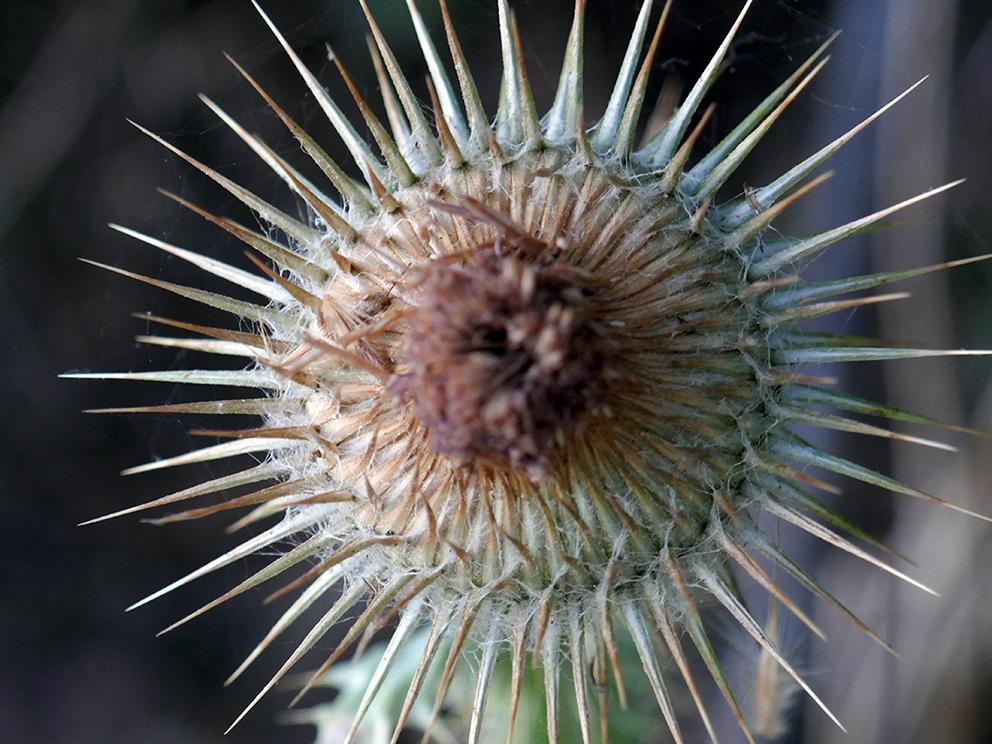―Good morning, Mr... sorry, I can’t remember your name.
―Good morning. Don’t worry; we viruses don’t have names.
―They don't have names? Aren’t you called… SARS-CoV-2?
―Of course not. Those letters and numbers are just a label that humans have given us to try to find their bearings in our uncharted universe.
―Well, I’m here to interview you and I don’t mind telling you straight off that you are a vile murderer of innocent people.
―Look, I don’t think that you, those who call yourselves humans, have any right to say that about me. How many millions of living creatures do you kill each day for food? How many animals do you torture each year for fun? How many species have you driven to extinction? How many men have been slaughtered by other men throughout history?
Like everything in this world, I am just striving to preserve my being. In “Ethics, Demonstrated in Geometrical Order" Spinoza called this attitude "conatus". What’s more, we are not the result of our own will because we don’t have one; we are the result of the inertia of nature, which impels us to continue being. In reality, it’s not that we want to continue being, we need to continue being!
―You are not living beings! You are halfway between living and non-living since you cannot reproduce on your own. You are obligate intracellular parasites and without the cell’s metabolic machinery you are unable to feed yourselves or reproduce.
―Indeed, one of the main characteristics of living beings is the ability to reproduce, but reproduction begins with oneself so it is essential to feed yourself. However, animals are heterotrophic organisms. Unable to synthesise their own organic matter from inorganic matter, they are doomed to take life from others in order to live themselves. Therefore, humans, just like us, are also unable to provide their own food or reproduce by themselves. As you can see, we are similar in this regard.
―You don't produce or create anything, only pathogenic virions! So, can you explain why you even exist?
―Our purpose is to survive. Just like human beings and all other beings; even inert and defenceless ones like the mountains, rivers or glaciers. That is why we mutate. We transform ourselves to adapt to the environment. Sometimes this is spontaneous but at other times it is provoked by circumstances or evolutionary processes, which are neither planned nor determined by any omniscient or omnipotent being. Evolution is autonomous and unpredictable; no one can start, direct or stop it.
―However, when you kill your hosts you are also bringing about your own end.
―That’s true. The destruction of the host is an unintended consequence of what we do that damages us, which is why the evolutionary path we follow tends to go in the opposite direction: it tries to respect the life of the creatures we inhabit. The mutations that succeed are therefore those that allow us to be extremely infectious but not very lethal.
Our existence, like that of every living being, is a hard struggle. Animals, especially mammals, have a sophisticated immune system that annihilates us without compassion when it detects our presence. We must outwit it and succeed in spreading from one individual to another; otherwise we die and become extinct. And I can tell you that it’s not easy to achieve this. We are not fleas that can jump two metres. We do not have any muscles or eyes, and of course we have no brain. Our weapon is patience: we stalk our victims, always on the hunt for distraction, carelessness, overconfidence and panic!
—Can I just ask what you hope to achieve by making us sick and killing us?
—If you read the work that I quoted you will find your answer there. It says that humans have a serious prejudice, which is to suppose “that all natural things act, as men do, on account of an end."
As biological organisms, viruses have the same right to exist as humans. Our ancestral support is the life force of nature that has been guiding us for billions of years; long before hominids set foot on the earth. In this endless struggle, those whose "conatus" is the most powerful, the most persistent, will win. In truth, it is not a question of intelligence in the strict sense: the most intelligent person is not the one who solves the most difficult problems, but rather the one who anticipates and avoids them. No matter how intelligent we think we are, perish the thought that we cannot find a solution if the need arises.
―Well, that’s all very interesting! I would like to finish with one final question. Are you planning to stay with us for long?
―As long as possible.
―I can assure you that your stay will be shorter than you think!
―Only time will tell.

